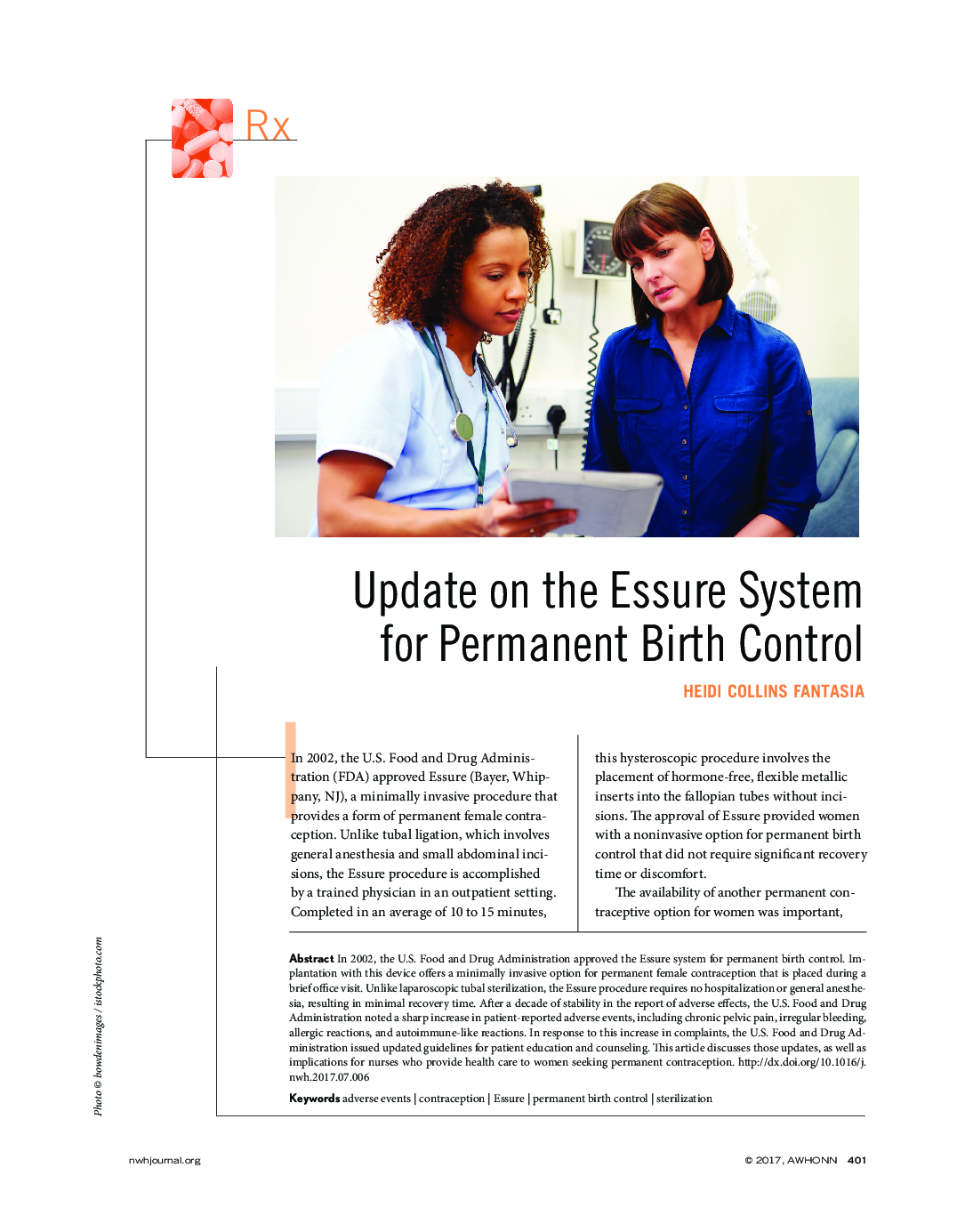| Article ID | Journal | Published Year | Pages | File Type |
|---|---|---|---|---|
| 5565757 | Nursing for Women's Health | 2017 | 5 Pages |
Abstract
In 2002, the U.S. Food and Drug Administration approved the Essure system for permanent birth control. Implantation with this device offers a minimally invasive option for permanent female contraception that is placed during a brief office visit. Unlike laparoscopic tubal sterilization, the Essure procedure requires no hospitalization or general anesthesia, resulting in minimal recovery time. After a decade of stability in the report of adverse effects, the U.S. Food and Drug Administration noted a sharp increase in patient-reported adverse events, including chronic pelvic pain, irregular bleeding, allergic reactions, and autoimmune-like reactions. In response to this increase in complaints, the U.S. Food and Drug Administration issued updated guidelines for patient education and counseling. This article discusses those updates, as well as implications for nurses who provide health care to women seeking permanent contraception.
Related Topics
Health Sciences
Medicine and Dentistry
Obstetrics, Gynecology and Women's Health
Authors
Heidi Collins Fantasia,
